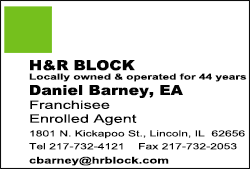|
 The U.S. Securities and Exchange Commission called its first
witnesses in administrative proceedings in New York in a fraud case
launched in October against Wing Chau and his New Jersey investment
advisery firm Harding Advisery LLC. The U.S. Securities and Exchange Commission called its first
witnesses in administrative proceedings in New York in a fraud case
launched in October against Wing Chau and his New Jersey investment
advisery firm Harding Advisery LLC.
The hearing marked the start of one of a handful of trials in cases
brought by the SEC over events leading up to the 2008 financial
crisis. Chau lost a bid to block the case from going forward.
The SEC accuses Chau and Harding Advisery of allowing hedge fund Magnetar Capital LLC undisclosed influence over the selection of
collateral for a $1.5 billion transaction called Octans I CDO Ltd.
The SEC alleges that Magnetar played a role in the deal despite its
known strategy of taking short positions on mortgage-backed
securities in CDOs, including ones it was investing in, as it was in
Octans I.

The CDO deal, which closed in September 2006, was structured and
marketed by Merrill Lynch. The CDO failed in April 2008, leaving
investors with $1.1 billion in losses, the SEC said.
In a small courtroom in lower Manhattan, Chau, who denies the
charges, sat beside his lawyers as the SEC questioned a former
Merrill Lynch sales employee.
Richard Lasch, the former employee, testified about a 2006 meeting
in which Merrill and Magnetar agreed to together choose the firms
that would serve in the deals as collateral manager.
Those firms included Maxim Group LLC, a predecessor firm to Harding
headed by Chau that became the manager of Octans, the first CDO
involving Magnetar, he said.
"There were a number of CDOs Magnetar was involved in that Merrill
Lynch issued," said Lasch, who now works in a sales capacity at
SunTrust Banks Inc in Boston.
Bank of America Corp, which now owns Merrill Lynch, agreed in
December to pay $131.8 million to resolve claims the company misled
investors about Magentar's role in two CDOs, including Octans I.
[to top of second column] |

FEATURED IN 'THE BIG SHORT'
The case before SEC Administrative Judge Cameron Elliott could last
up to two weeks, according to the SEC website.
Chau was featured in "The Big Short," a best seller about the
financial crisis by Michael Lewis.
In the book, Lewis describes a dinner conversation in January 2007
during a conference in Las Vegas between Chau and Steve Eisman, a
hedge fund manager at FrontPoint Partners who based on the
discussion increased his bets against CDOs.
In 2011, Chau sued Lewis for defamation, saying the book portrayed
him and other CDO managers in the book as "villains" while Eisman
came off as a "heroic" figure who saw the collapse of the mortgage
market coming. A judge tossed the lawsuit in March 2013.
Chau also sued the SEC seeking to block the current case, claiming
the regulator was violating his constitutional rights by
"shoehorning" its case into an administrative proceeding after it
"repeatedly stumbled" in similar cases.
At a March 19 hearing, U.S. District Judge Lewis Kaplan denied
Chau's motion for a temporary restraining order.
(Reporting by Nate Raymond in New York;
editing by David Gregorio)
[© 2014 Thomson Reuters. All rights
reserved.] Copyright 2014 Reuters. All rights reserved. This material may not be published,
broadcast, rewritten or redistributed.

 |